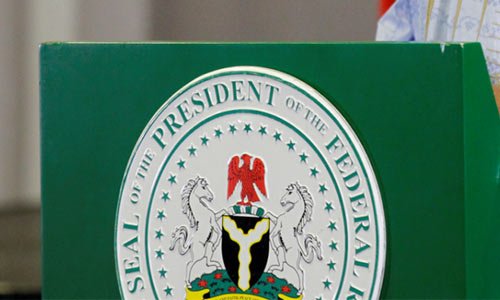THE EXECUTIVE 25/05/2023
FG Moves To Strengthen Legal Framework On Cybercrimes

The Federal Government, on Wednesday, said it was worried about the high spate of cybercrimes in the country, describing it as an emerging threat to national security.
Consequently, it convened a meeting of critical stakeholders that included the Chief Judge of the Federal High Court, the National Security Adviser, the Inspector General of Police, as well as heads of the various anti-graft agencies.
The Attorney-General of the Federation and Minister of Justice, Abubakar Malami, SAN, who flagged off the 1st National Consultation on the Cybercrimes Legal Framework, said there was a need for the country to
strengthen its legal arsenal against cyber criminals.
The AGF, while acknowledging that more than half of the world’s population are active internet users, said it was getting harder to escape the use of the internet.
He said: “It goes without saying that because of the population in Nigeria, it has a considerable number of these users.
“This was even increased by the emergence of new technologies, the COVID-19 pandemic, and the remote ‘work’ driven by health and safety concerns.
“While on the one hand, there is the unique opportunity and benefits that this digital transformation provides, on the other hand, there are attendant threats and challenges.
“We now have a situation where the good and the bad life – individuals, business, governments, and criminals have largely migrated to cyberspace and like a writer said, ‘the growing convenience of the cyberspace comes at a cost’.
“Particularly in the area of national security, personal privacy, and economic development.
‘In 2011, the Evidence Act was amended to cover the admissibility of electronic evidence in Nigeria.
“While this was a good step in the right direction, the astronomic increase of the use of technology with the gains and attendant pains – the thriving of illegal activities on the internet, the need for a comprehensive legal framework had to be met.”
He said the meeting, as the first in the series, was “designed to debrief on the main conclusions of the desk study on the Cybercrimes Act and provide a platform for inclusive dialogue, enabling us to harness the collective wisdom and expertise of all key players in the sector.”
According to Malami, SAN; “The challenges posed by cybercrime are ever-evolving, and we must remain proactive in our approach to combatting them. Our legislation must adapt to the rapidly changing threat landscape, addressing emerging trends and technologies.
“Therefore, this consultation is not merely a formality, but a critical step towards strengthening our legal arsenal against cyber criminals.
“It is a collaborative effort that will undoubtedly pave the way for a more robust and effective framework.”
In his remarks, the Chief Judge of the Federal High Court, Justice John Tsoho, who was represented by Justice Donatus Okorowo, noted that given the privacy and anonymity associated with the cyber world, a lot of crimes are being perpetuated and curbing them has become a problem.
He said: “The increased volume in the use of Information Technology and the observation of the positive impact on daily lives and economic interactions has led to an increase in cybercrimes in many forms.
“These crimes include hacking, financial crimes, spamming, identity theft, and more complex crimes such as cyber terrorism and financing, cyberstalking, and so on.
“It is not in dispute that everybody Is a victim or is at risk of cybercrime, hence the need for a joint or collaborative effort to fight the menace.
“In recent times, stakeholders have concluded, and the right one I must say, that if you don’t contribute to reducing cybercrime in other climes. it will find its way to your doorstep.
“The Federal High Court is well represented here today as a testament to our belief in this process, In the course of administering justice, certain loopholes have been identified.
“It is thus, a welcome development that consultations have commenced on the improvements that can be made to the Cybercrime (Prohibition, Preventions) Act, to have a more robust legislation,” Justice Tsoho added.



